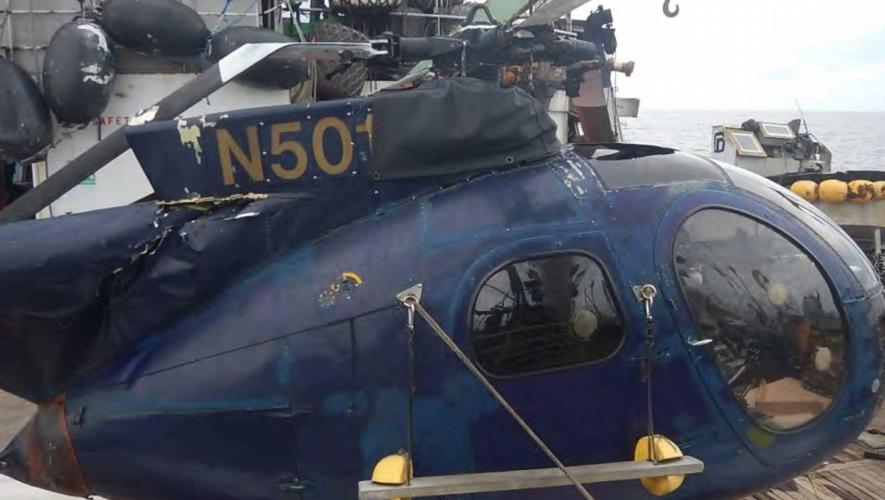Helicopter Association International (HAI) president Roy Resavage is calling it a day, after seven-and-a-half years at the helm of the helicopter industry’s association in Washington, D.C. While HAI looks for a successor, AIN talked to Resavage about some of the highs and lows he has experienced while representing the association’s hundreds of members to the movers and shakers on Capitol Hill.
Resavage dove into the murky waters of politics and lobbying after a 27-year career in the U.S. Navy, having decided to do almost anything rather than sit on his modest naval pension or work for a defense contractor. He developed a taste for politics during the three years he spent working with a phone company after his retirement from the Navy.
Although he got to fly himself around on business, he missed working in the aviation industry and, when he found the job with HAI (although the association withheld its identity) advertised on the Internet, he thought it had his name on it.
When Resavage joined the association, HAI spent a great deal of time negotiating directly with the FAA and NTSB, and Resavage suggested that the organization might have more success if it changed tack and made its case for the helicopter industry directly to the legislature.
Association members agreed to adopt a new strategy to target relevant committees, lobbying Congressmen who represented districts with helicopter interests, such as Hawaii and Nevada for tourism and Philadelphia (Boeing) for employment issues. The thinking was that if HAI argued its case effectively, the legislators would bring pressure to bear on the regulator.
A Victory for Helicopter Air-tour Operators
That approach has delivered results for HAI members. “One issue, which is only now about to be resolved, involves the proposed application of a tax burden that would have affected tour operators in particular. The Senate has just passed a Highway Bill Conference Report,” which President Bush signed into law at press time.
“HAI strongly supported this bill because it contains Congressional clarification for air-tour operators that they are subject to fuel tax, which they have historically paid, but not the transportation excise tax that the Internal Revenue Service claimed they should also pay. Senator Daniel Inouye (D-Hawaii) introduced the bill, which he cosponsored with Rep. Hayworth (R-Ariz.), so you can see the benefits of our approach. It may have taken three-and-a-half years, but one thing I accept now is that nothing happens overnight.”
Tour operators have taken something of a pounding during Resavage’s watch, and the argument about noise over national parks remains a hot-button issue. That situation is still not resolved, “and may still not be when you and I are worm-bait,” said Resavage.
Addressing Communications over the Gulf of Mexico
Despite a current delay in implementation, Resavage is pleased with the progress that HAI and its members have made toward providing better protection for helicopters flying over the Gulf of Mexico. First, technology that offers automatic weather forecasting and digital flight following is now available.
In addition, as a result of intense lobbying by HAI, in 2003 Congress enacted legislation to reauthorize FAA programs that would allow the implementation of low-altitude weather-reporting and communications in the Gulf. “Until then, you weren’t legally allowed to file an IFR flight plan without knowing what the weather was like at your destination. If a platform is 200 miles offshore, how were you supposed to know?”
As seasoned Washington watchers know only too well, getting legislators to acknowledge the need for a project is one thing; getting them to earmark money to pay for it is another. “HAI is trying to solicit support from Congress to fund the FAA for this project. However, as you know, the FAA’s budget has been reduced rather than increased. Combined with the ongoing struggle with the air traffic controllers, that is consuming 80 percent of the budget, so things are pretty lean at the moment.
“We are still hopeful that we will eventually have a breakthrough, though it will be a phased program where different elements of communications, surveillance and weather will be cobbled together in limited sectors of the Gulf, eventually reaching the stage where they provide seamless coverage. There are still many hurdles to overcome, but deferred gratification is a fact of life when you are a minority player.”
Resavage is also proud of the progress HAI and the overseas organizations that compose IFHA (International Federation of Helicopter Associations) have made in their contacts with the International Civil Aviation Organization (ICAO) in Montreal. The association has had input into the revision of ICAO Annex 6, the rules that affect rotorcraft operation and the first such revision to take place in more than 20 years.
It will still take several years to formulate into legislation, said Resavage, but HAI members should eventually see a streamlining of the rules governing their operations around the world and a net benefit to every operator.
After handing the reins to his successor, Resavage will remain in the Washington, D.C. area, at least for the time being. He said there has been a good response to news of the vacancy for his job. The association has received résumés from some highly qualified applicants, and it hopes to be in a position to appoint someone in the fall.
This relatively brisk process will be in stark contrast to Resavage’s experience after applying for the job in 1998, when he waited for three months–and decided they had forgotten about him–before being invited for an interview. That’s another side of HAI’s activity that has become far more dynamic and customer-focused, since his arrival.
AIN wishes him well.







